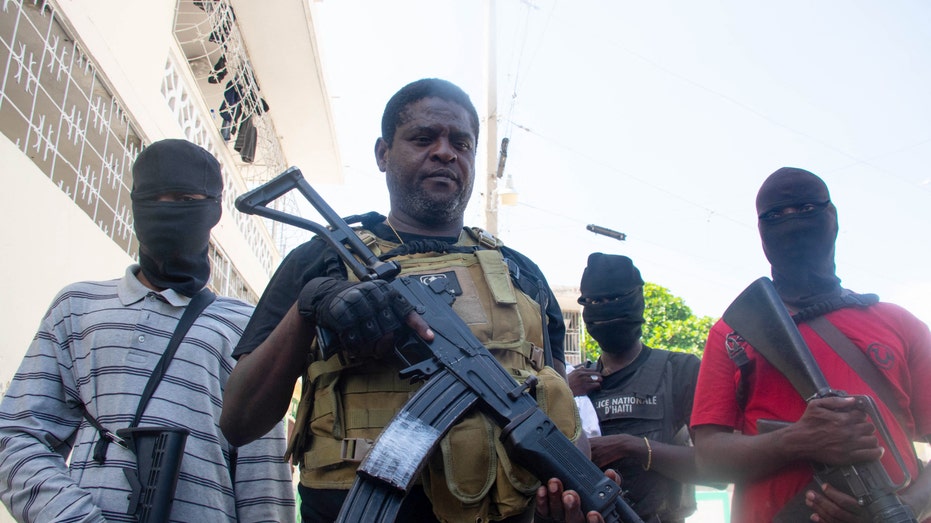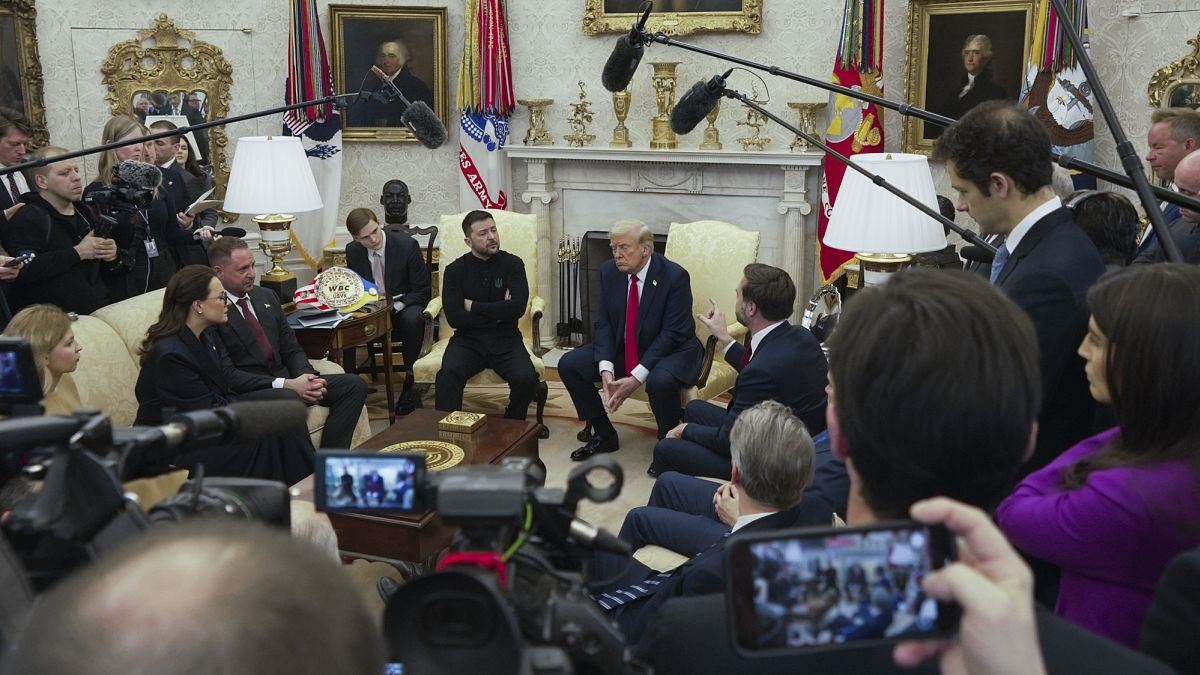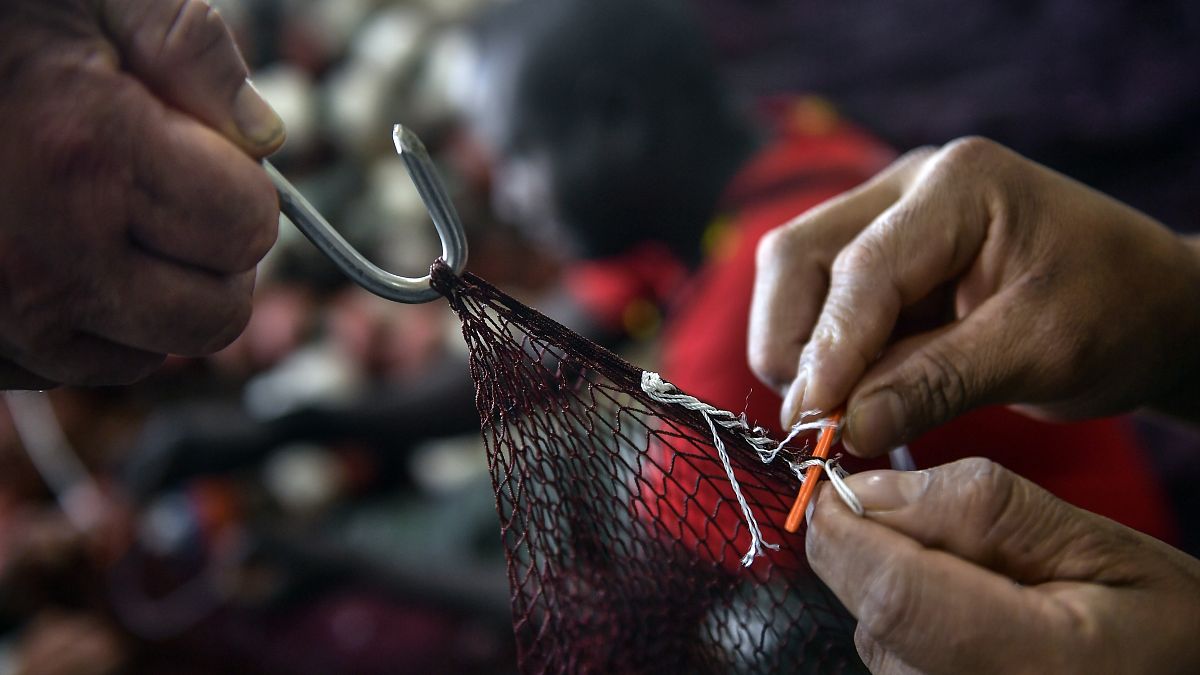Who is 'Barbecue,' the gang leader wreaking havoc in Haiti?
Jimmy Cherizier, known by the nickname “Barbecue," has recently threatened "genocide" if Haitian Prime Minister Ariel Henry does not step down.

The leader of Haiti’s most powerful gang may now be the most powerful person in the country, which has been thrust into chaos by rival gangs calling for Prime Minister Ariel Henry to step down.
"The people are desperate. They're in a desperate situation," former NFL star Jack Brewer, who now works as the chairman of the Jack Brewer Foundation and is on the board of the GEO Group, said of the situation in Haiti in an interview with Fox News Digital. "You have a massive brain drain going on, where anybody who has the ability to leave, they leave, and then you leave the voiceless and the most poor and vulnerable. Those are the ones that are left to suffer."
Brewer, who has worked over a decade in Haiti on multiple causes, is not surprised by the recent unrest in the country. His comments come as Haiti has been plagued by renewed violence and unrest over the last few weeks. The country's powerful gangs have attacked government targets, burned police stations and raided prisons, leading to the release of thousands of inmates.
At the center of the chaos is 46-year-old Haitian gang leader Jimmy Cherizier, known by the nickname "Barbecue." He runs a gang coalition called the G9 Family and Allies, which has risen to become perhaps the most powerful gang in Haiti.
Cherizier previously served as an officer with the Haitian National Police before becoming a gang leader, but his notorious reputation started even during his time in law enforcement, including allegations he was responsible for the 2018 La Saline massacre, when at least 71 people were killed and 400 homes were burned down. It earned him the nickname "Barbecue," according to The Associated Press, though Cherizier claims the name came from his mother's work as a fried chicken street vendor.
"In America, you don't associate law enforcement, former law enforcement, with gangs," Mark Montgomery, a senior fellow at the Foundation for Defense of Democracies, told Fox News Digital.
But that reality is different in Haiti, Montgomery explained, noting that Haiti's gangs are more akin to old American gangs of the 19th century that tried to run neighborhoods in New York City. A more modern-day comparison would be Mexican drug cartels, though Montgomery noted that cartels are dependent on a specific revenue stream and control more defined territory, while gangs in Haiti are more scattered and use multiple avenues of illegal activity to fund their operations.
Cherizier runs what is potentially the most powerful of hundreds of gangs, Montgomery said, with the group having control of both maritime and aviation checkpoints that allow for both revenue streams as a result of ransom payments and the ability to bring in large amounts of weapons.
That control also allows Cherizier to benefit from the large amounts of U.S. aid flowing into Haiti. Montgomery argues it is inevitable some of that money and other assistance will fall into the hands of gangs.
US DEPLOYS MARINE ANTI-TERRORISM UNIT TO HAITI TO PROTECT EMBASSY
But Cherizier's ambitions seemingly became even greater in recent weeks. The gang leader said this month the ultimate goal was to overthrow Henry's government. That statement also came with threats. Cherizier said continued support for the prime minister by the "international community" would "lead us directly to a civil war which will end in genocide."
For his part, Henry agreed to resign last month before an apparent change of heart led him to travel abroad in search of support for a United Nations peace-keeping force to be deployed to Haiti to combat gang violence. He has since been held up in the Dominican Republic, where Tuesday he again vowed to step down and allow for a transition of power.
"The government that I am leading will resign immediately after the installation of (a transition) council," Henry said in a video address, according to a report from Reuters. "I want to thank the Haitian people for the opportunity I had been granted.
"I'm asking all Haitians to remain calm and do everything they can for peace and stability to come back as fast as possible."
But that instability may be part of the point for Cherizier, Montgomery said, arguing the gang leader "flourishes on instability" and could seek to "keep the country as unstable as possible."
As for whether Cherizier's end goal could be to take over political power in the country, Montgomery noted that the gang leader's "methodology" would not "give him a path to prime minister or president."
BLINKEN TO MEET WITH CARIBBEAN LEADERS AS HAITI'S VIOLENT CRISIS GROWS
"He does do things that make you think he wants popular support," Montgomery added. "They do a little bit of Robin Hood … redistribution of wealth. But he also supports people ransacking banks, stores and shopping malls."
Eddy Acevedo, the chief of staff to the president and CEO of the Woodrow Wilson International Center for Scholars, told Fox News Digital the situation in Haiti has been brewing for some time.
"The instability in Haiti did not occur overnight. For years, even before President Moïse was assassinated, the situation continued to deteriorate and, unfortunately, now that there is all this attention, it may be too late," Acevedo said.
With the situation reaching a breaking point, Acevedo argued Cherizier has tried to position himself as "being a man of the people, but this could not be more wrong."
"After he left the police force, his leadership of the G-9 gang led to several other massacres across the country and has been responsible for over 1,800 killings and injuries," Acevedo, a former national security adviser for USAID, said. "Due to these vicious atrocities, Barbeque was sanctioned in 2022 by the U.S., Canada and the U.N. Security Council."
Brewer argued that Cherizier benefits from quite a bit of popular support.
"This is not a guy that's looked at as like this bad guy that everybody wants to overturn. … There's a big chunk of that country that absolutely love him, that he feeds, that he takes care of," Brewer said.
Realities on the ground, such as Cherizier's popular support, are facts that U.S. and international leaders fail to understand, Brewer said, arguing U.S. policy in Haiti will continue to fail the country's people. Those failures will continue to become a bigger issue for the U.S., Brewer said, arguing the instability will lead to a continued flow of migrants to the southern border.
"I said two years ago, if we don't do something in Haiti, the crisis is going to get to the point where they're going to flood our borders, and every criminal and the baddest people in Haiti will come to the United States of America," Brewer said. He argued that reality has already come true in the two years since and will only continue to get worse in the coming years.
The only solution, Brewer said, is for the U.S. military to intervene, arguing the U.S. could easily defeat the gangs and create a new level of stability in the country.
"We're talking about funding Ukraine, we need to be funding this scenario that's on our border," Brewer said. "I think it would take us three days. I think in three days you could have all of these thugs wiped out and stability back."
From there, Brewer argued for a "Corps of Engineers" that could provide a base for the country to rebuild and to help its people gain critical skills that would elevate it toward a brighter future.
"If you don't do that, you'll never rebuild this nation," Brewer said. "That's where all of our money should be going, not to these other far-fetched ideas that may work in other countries."
What's Your Reaction?
















